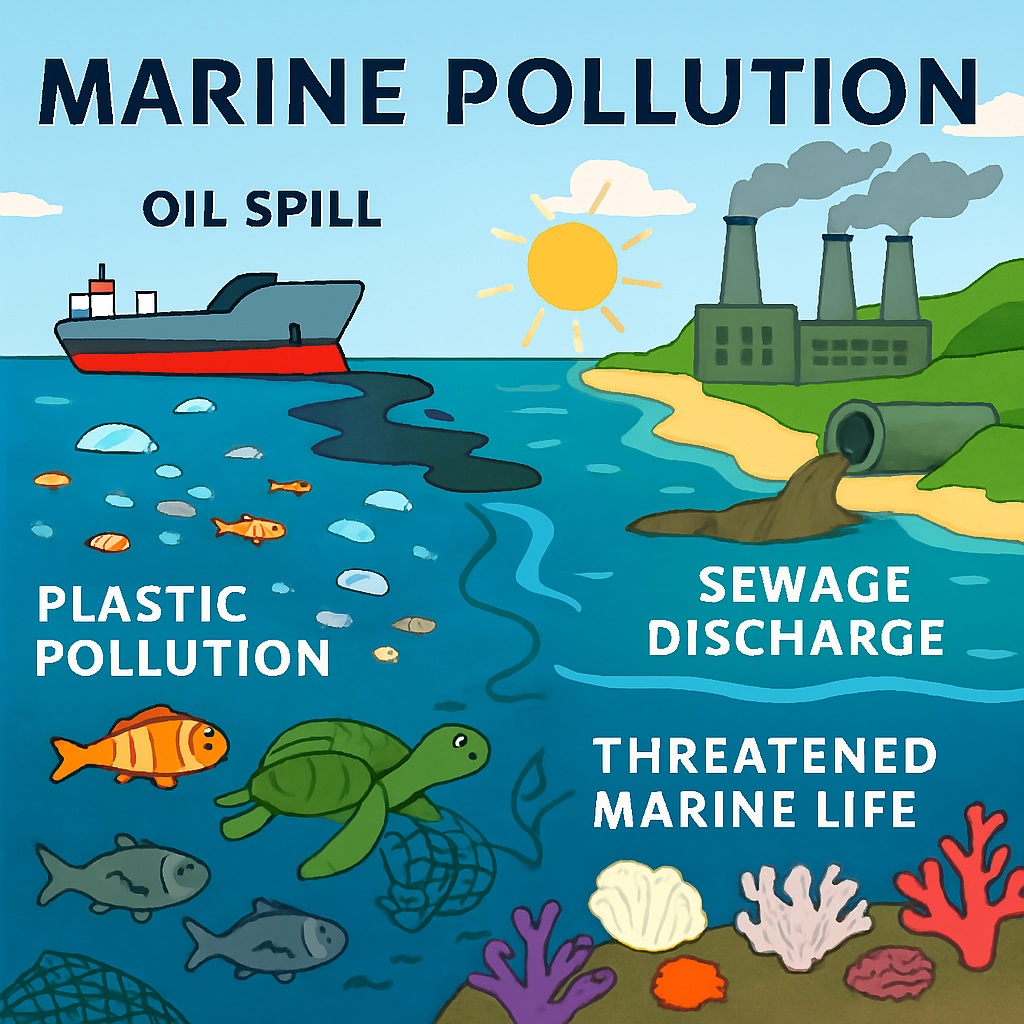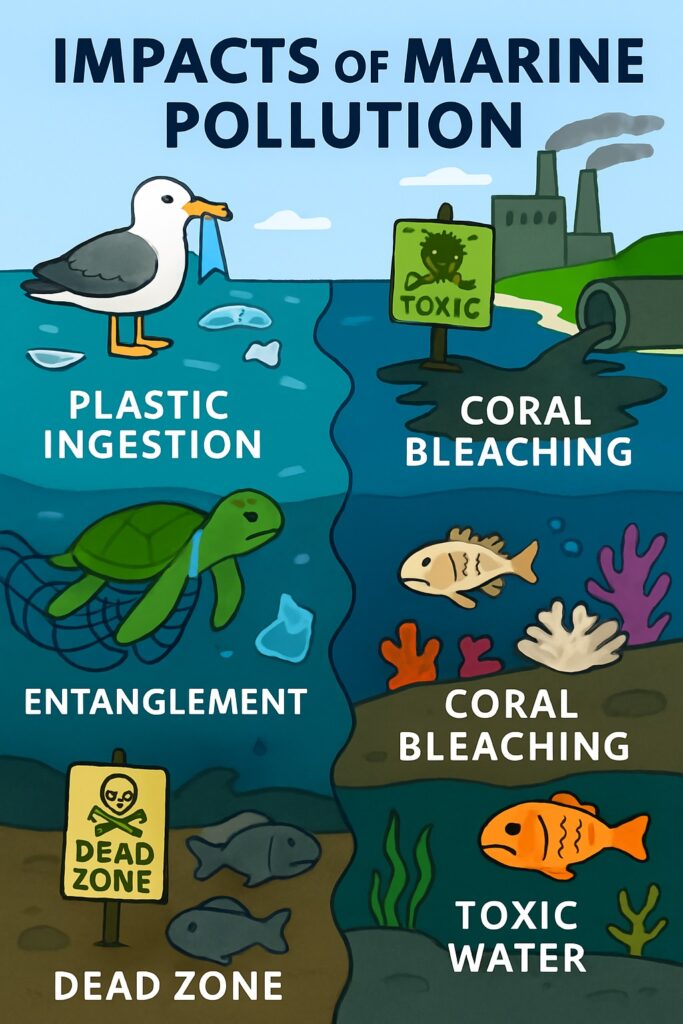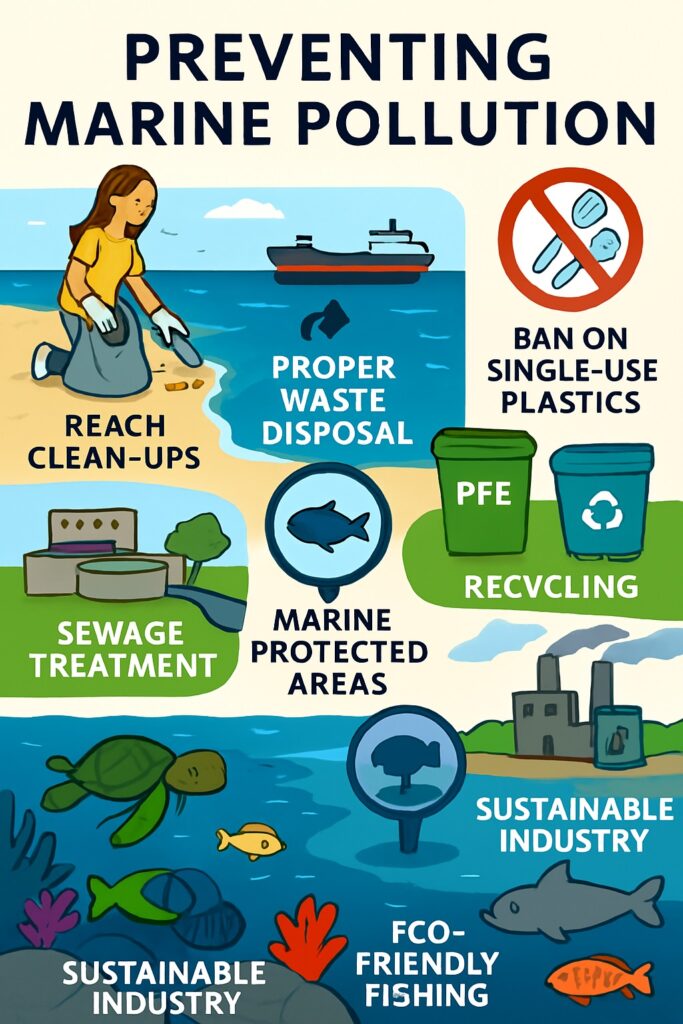Marine pollution is a major environmental issue that affects the health of our oceans and the life they support. It is caused by a variety of sources, including ships, oil spills, land-based sources, and plastic waste. The impacts of marine pollution are widespread and include the death of marine life, the destruction of habitats, and the contamination of seafood and other food sources. In this article, we will discuss the causes and impacts of marine pollution and the strategies for prevention.

Table of Contents
Causes of Marine Pollution
Marine pollution is caused by a variety of sources:
- Ships: Ships are a major source of marine pollution, as they release oil, sewage, and chemicals into the ocean. This can have serious impacts on marine life and the marine environment.
- Oil Spills: Oil spills are a significant cause of marine pollution, as they release large quantities of oil into the ocean and can have serious impacts on marine life and the marine environment.
- Land-based Sources: Land-based sources, such as agricultural runoff, sewage, and industrial discharge, are a significant cause of marine pollution, as they release pollutants into the ocean that can harm marine life and the marine environment.
- Plastic Waste: Plastic waste is a major cause of marine pollution, as it is not biodegradable and can persist in the ocean for hundreds of years. Plastic waste can harm marine life and the marine environment by entangling and ingesting marine animals, and by contaminating the food chain.
Impacts of Marine Pollution
The impacts of marine pollution are widespread.
- Death of Marine Life: Marine pollution can harm and kill marine life, including fish, marine mammals, and sea turtles. This can have serious impacts on marine ecosystems and the food chain.
- Destruction of Habitats: Marine pollution can destroy habitats, such as coral reefs and seagrass beds, which are important for the survival of many species of marine life.
- Contamination of Seafood and Other Food Sources: Marine pollution can contaminate seafood and other food sources, which can pose a serious health risk to humans.
- Economic Impacts: Marine pollution can also have significant economic impacts, as it can affect commercial and recreational fishing, tourism, and other industries that depend on the health of the marine environment.

Marine Pollution Effects
Strategies for Prevention
There are a number of strategies for preventing marine pollution.
- International Agreements: International agreements, such as the International Convention for the Prevention of Pollution from Ships (MARPOL) and the London Convention and Protocol, provide the framework for the regulation of ships and the disposal of waste at sea.
- Pollution Prevention: Pollution prevention strategies, such as the use of environmentally friendly products and the implementation of best management practices, can help reduce the release of pollutants into the ocean.
- Monitoring and Enforcement: Monitoring and enforcement programs, such as the enforcement of international agreements and the implementation of monitoring and reporting systems, can help prevent marine pollution and ensure compliance with international regulations.
- Public Education and Outreach: Public education and outreach programs, such as educational campaigns and community involvement, can raise awareness of the impacts of marine pollution and encourage individuals to take action to prevent marine pollution.

Preventing Marine Pollution
Conclusion
Marine pollution is a major environmental issue that affects the health of our oceans and the life they support. It is caused by a variety of sources, including ships, oil spills, land-based sources, and plastic waste. The impacts of marine pollution are widespread and include the death of marine life.

